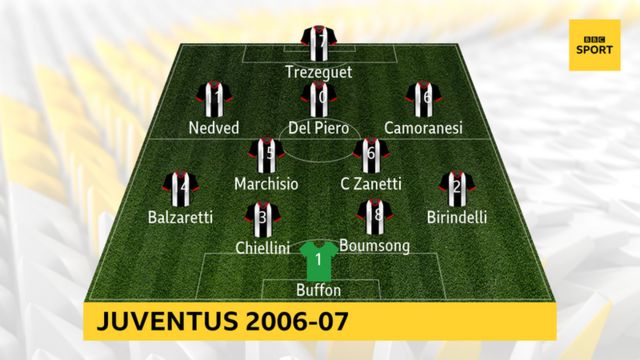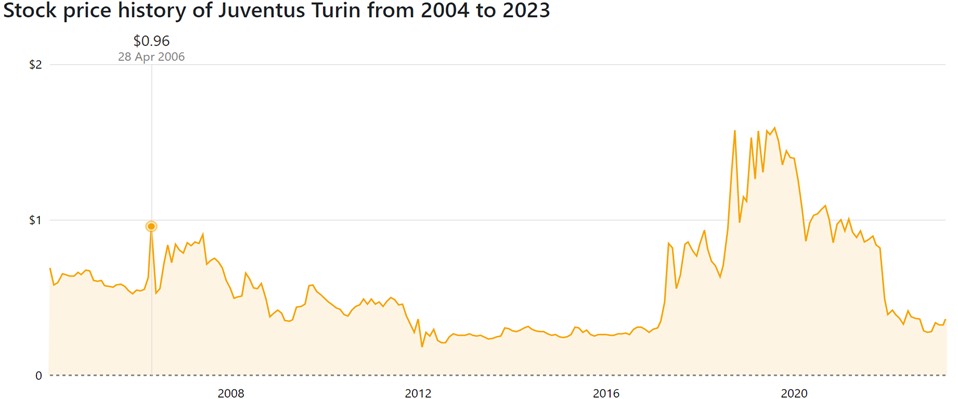Introduction:
In the summer of 2006, the world of football was rocked by a scandal that shook one of Italy’s most successful clubs to its core. Juventus, a powerhouse in Serie A, was embroiled in a financial scandal known as Calciopoli. The scandal exposed a web of corruption, match-fixing, and illicit activities that tarnished the reputation of the club and sent shockwaves throughout the footballing community. This blog post dives into the details of the Juventus financial scandal and explores its far-reaching consequences.

The Calciopoli Scandal Unveiled:
Calciopoli, which translates to “football-gate” in Italian, was an investigation conducted by Italian authorities into allegations of match-fixing and referee selection bias. The scandal came to light when intercepted phone conversations between club officials and referees were made public. These recordings revealed a systematic effort by Juventus and other clubs to influence referee assignments and manipulate match outcomes.
The Involvement of Juventus:
Juventus, Italy’s most successful club at the time, was at the center of the Calciopoli scandal. It was alleged that the club had a significant role in attempting to influence referee appointments in their favor. The scandal implicated high-ranking Juventus officials, including the club’s general manager, Luciano Moggi, and the CEO, Antonio Giraudo. It was suggested that Moggi exerted pressure on officials to favor Juventus during crucial matches, affecting the outcome of league titles.
Consequences for Juventus:
The Italian Football Federation (FIGC) conducted an investigation into the Calciopoli scandal, and in July 2006, Juventus was found guilty of sporting fraud. The club was stripped of their 2005 and 2006 Serie A titles and relegated to Serie B for the following season. Additionally, Juventus received a nine-point deduction for the start of their Serie B campaign. The scandal also resulted in significant fines and bans for several officials and players associated with the club.
Impact on Italian Football:
The Calciopoli scandal had a profound impact on Italian football as a whole. The revelations not only tainted the reputation of Juventus but also implicated other prominent clubs, including AC Milan, Fiorentina, and Lazio. As a result, these clubs faced various penalties, including point deductions and relegations. The scandal sparked a crisis of confidence in Italian football, with fans and sponsors expressing disillusionment and leading to a decline in Serie A’s international reputation.

The DownFall of Juventus Stock Prices after the Scandal
Rebuilding and Redemption:
In the aftermath of the scandal, Juventus faced an arduous task of rebuilding both on and off the pitch. The club experienced significant changes in its management structure and underwent a period of financial and sporting restructuring. Juventus returned to Serie A the following season and embarked on a remarkable journey back to the top of Italian football. They have since regained their dominance domestically, winning multiple Serie A titles and reestablishing their status as one of Europe’s elite clubs.
Lessons Learned and Reforms:
The Calciopoli scandal prompted Italian football authorities to implement substantial reforms to prevent future corruption and match-fixing incidents. The FIGC introduced stricter regulations and monitoring mechanisms to ensure the integrity of the sport. Additionally, legal actions were taken against individuals involved in the scandal, leading to convictions and bans for several officials and referees.
Conclusion:
The Juventus financial scandal of 2006, commonly known as Calciopoli, stands as one of the darkest chapters in Italian football history. It exposed a network of corruption and match-fixing that shook the foundations of the sport. Juventus, once at the pinnacle of Italian football, suffered severe consequences, but the club managed to rebuild and reestablish itself. The scandal led to much-needed reforms within Italian football, emphasizing the importance of integrity, fair play, and transparency. It serves as a reminder that even the most successful clubs are not immune to the temptations of corruption, and vigilance is crucial to preserving the integrity of the beautiful game.
The Juventus financial scandal was a serious and damaging episode for the club, but it has also served as a wake-up call for the football industry as a whole, highlighting the need for greater transparency and accountability in financial transactions. The long-term impact of the scandal on Juventus’ financial position remains to be seen, but the club’s response to the crisis will be critical in determining its future success. As of now Juventus Football club has come out from the impact of this scandal and now they are doing well in the Italian League (Serie A).

